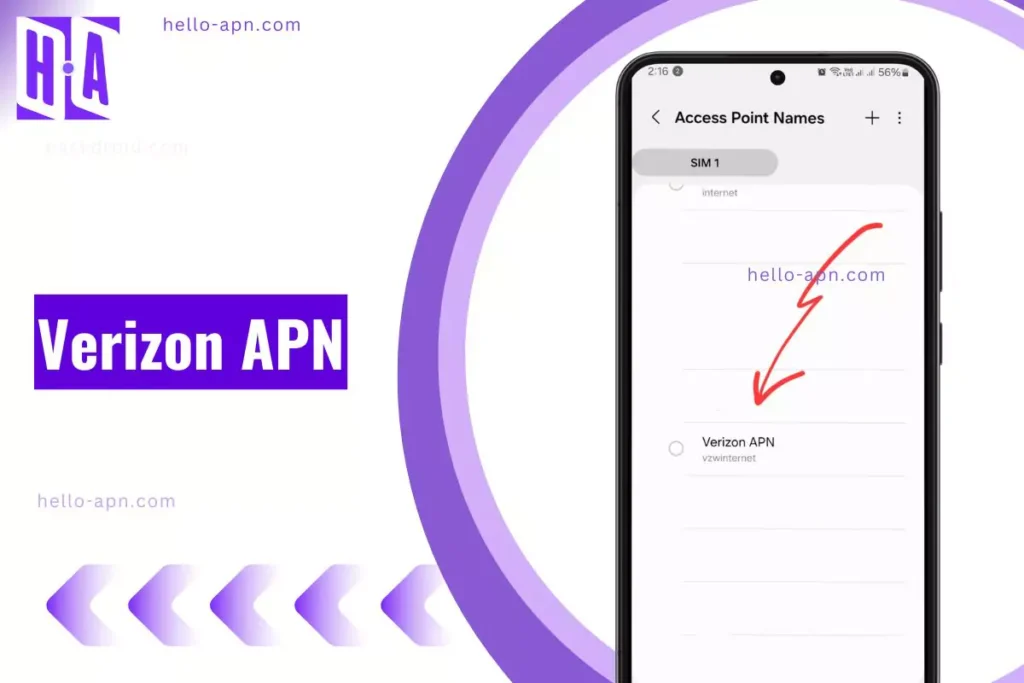Here’s exactly what you are looking for, it is the Google Fi APN Settings, for your Android, iOS and other devices. This is proven to improve the upload and download speed including with the Stable ping moreover, it is recommended by all the users online.
Unlike traditional MVNOs that rely on a single carrier, Google Fi utilizes a pool of networks including T-Mobile, US Cellular, and international carriers to deliver seamless connectivity. Most devices are automatically configured by Google Fi, but for optimal performance, manual APN (Access Point Name) settings may be required.
Google Fi APN Settings
Here’s the information organized in a table format:
| Setting | Value |
| APN Name | Google Fi APN |
| APN | h2g2 |
| MMSC (MMS Center) | http://m.fi.goog/mms/wapenc |
| MCC (Mobile Country Code) | 310 |
| MNC (Mobile Network Code) | 260 |
| APN Protocol | IPv4/IPv6 |
| APN Roaming Protocol | IPv4/IPv6 |
| Proxy | (Blank) |
| Port | (Blank) |
| Username | (Blank) |
| Password | (Blank) |
| Server | (Blank) |
| MMS Proxy | (Blank) |
| MMS Port | (Blank) |
| Authentication Type | (Blank) |
| APN Type | (Blank) |
| Bearer | (Blank) |
| MVNO Type | (Blank) |
Google Fi is a mobile virtual network operator (MVNO) that provides cellular services within the United States as well as select international destinations.


Google Fi (T-Mobile)
| APN Name | APN | MMSC | MCC | MNC | Proxy | Port | Username | Password | Server | MMS Proxy | MMS Port | Authentication Type | APN Type | Bearer | MVNO Type |
| Google Fi (T-Mobile) | h2g2 | http://m.fi.goog/mms/wapenc | 310 | 410 |
Google Fi (US Cellular)
| APN Name | APN | MMSC | MCC | MNC | Proxy | Port | Username | Password | Server | MMS Proxy | MMS Port | Authentication Type | APN Type | Bearer | MVNO Type |
| Google Fi (US Cellular) | uscellular | http://m.uscellular.com/mms/wapenc | 311 | 480 |

Google Fi (Three UK)
| APN Name | APN | MMSC | MCC | MNC | Proxy | Port | Username | Password | Server | MMS Proxy | MMS Port | Authentication Type | APN Type | Bearer | MVNO Type |
| Google Fi (Three UK) | three.co.uk | http://mms.three.co.uk/mms/wapenc | 234 | 32 |

Google Fi (Freedom Mobile)
| APN Name | APN | MMSC | MCC | MNC | Proxy | Port | Username | Password | Server | MMS Proxy | MMS Port | Authentication Type | APN Type | Bearer | MVNO Type |
| Google Fi (Freedom Mobile) | freedom | http://mms.freedommobile.ca/mms/wapenc | 302 | 370 |

Google Fi (Bell Mobility)
| APN Name | APN | MMSC | MCC | MNC | Proxy | Port | Username | Password | Server | MMS Proxy | MMS Port | Authentication Type | APN Type | Bearer | MVNO Type |
| Google Fi (Bell Mobility) | bell | http://mms.bellmobility.ca/mms/wapenc | 302 | 2 |
Alternatives I Found for Google Fi Internet Settings
| APN Name | APN | MMSC | MCC | MNC |
| Google Fi (T-Mobile) | h2g2 | http://m.fi.goog/mms/wapenc | 310 | 410 |
| Google Fi (US Cellular) | uscellular | http://m.uscellular.com/mms/wapenc | 311 | 480 |
| Google Fi (Three UK) | three.co.uk | http://mms.three.co.uk/mms/wapenc | 234 | 32 |
| Google Fi (Freedom Mobile) | freedom | http://mms.freedommobile.ca/mms/wapenc | 302 | 370 |
| Google Fi (Bell Mobility) | bell | http://mms.bellmobility.ca/mms/wapenc | 302 | 2 |

Configuring APN Settings for Google Fi
Google Fi typically configures APN settings automatically. However, manual configuration may be required in certain cases.
My experience with Android devices
I suggest navigating to Settings > Network & Internet > Mobile network > Advanced > Access Point Names. To create a new APN, tap the “+” icon and input the following details:
The first step is navigating to your device’s “Network & Internet” or “Wireless & Networks” settings. From there, locate the “Access Point Names” or “APN” menu. Once you’ve entered this section, identify “Simba Mobile” as your network provider.
Look for an option to modify or edit the existing Simba APN entry, often indicated by an “i” icon or three vertical dots. Within the editing interface, you’ll find fields like “APN address” and “Proxy settings” – these govern how your device communicates with Simba’s network.
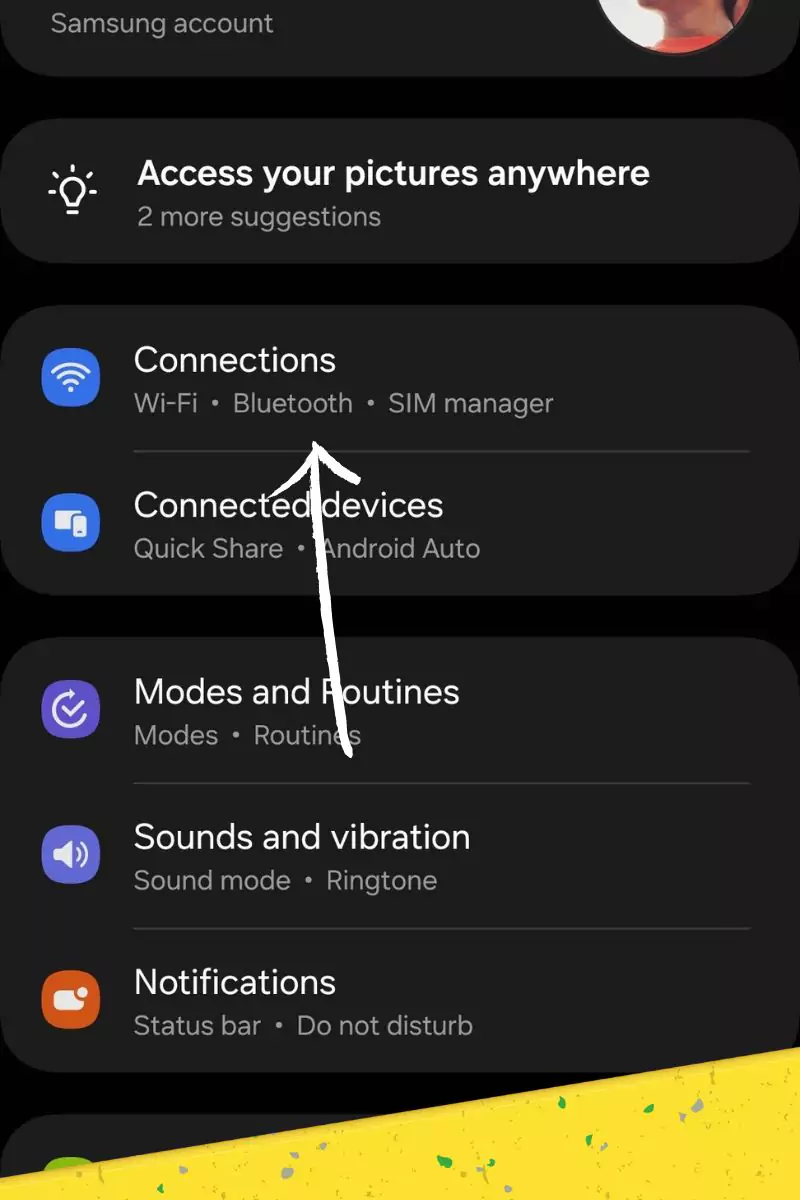
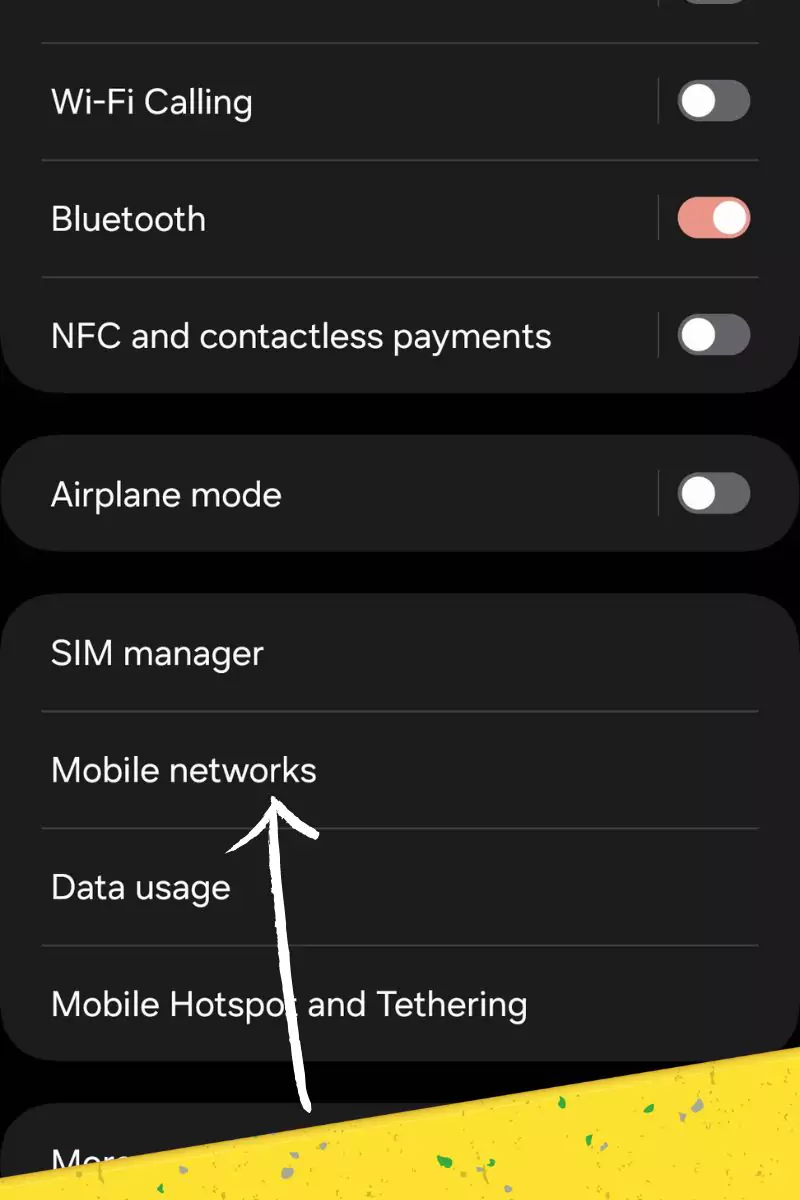
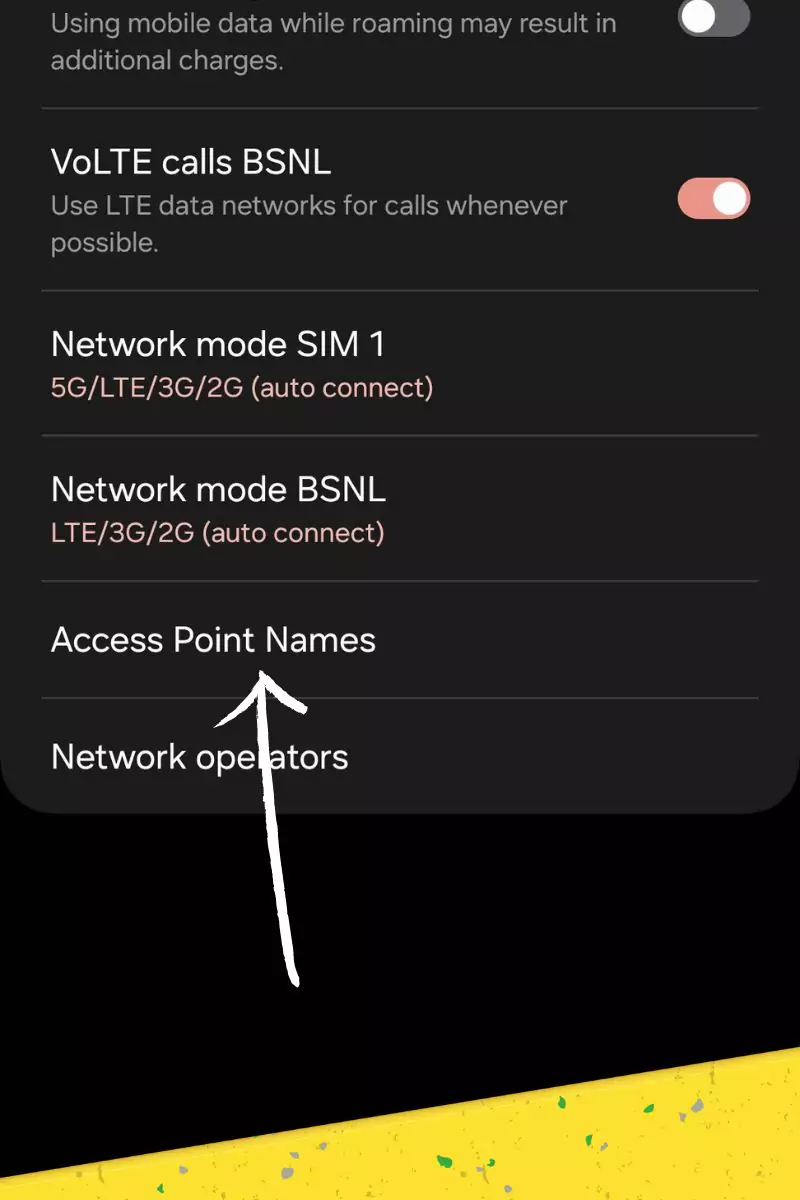
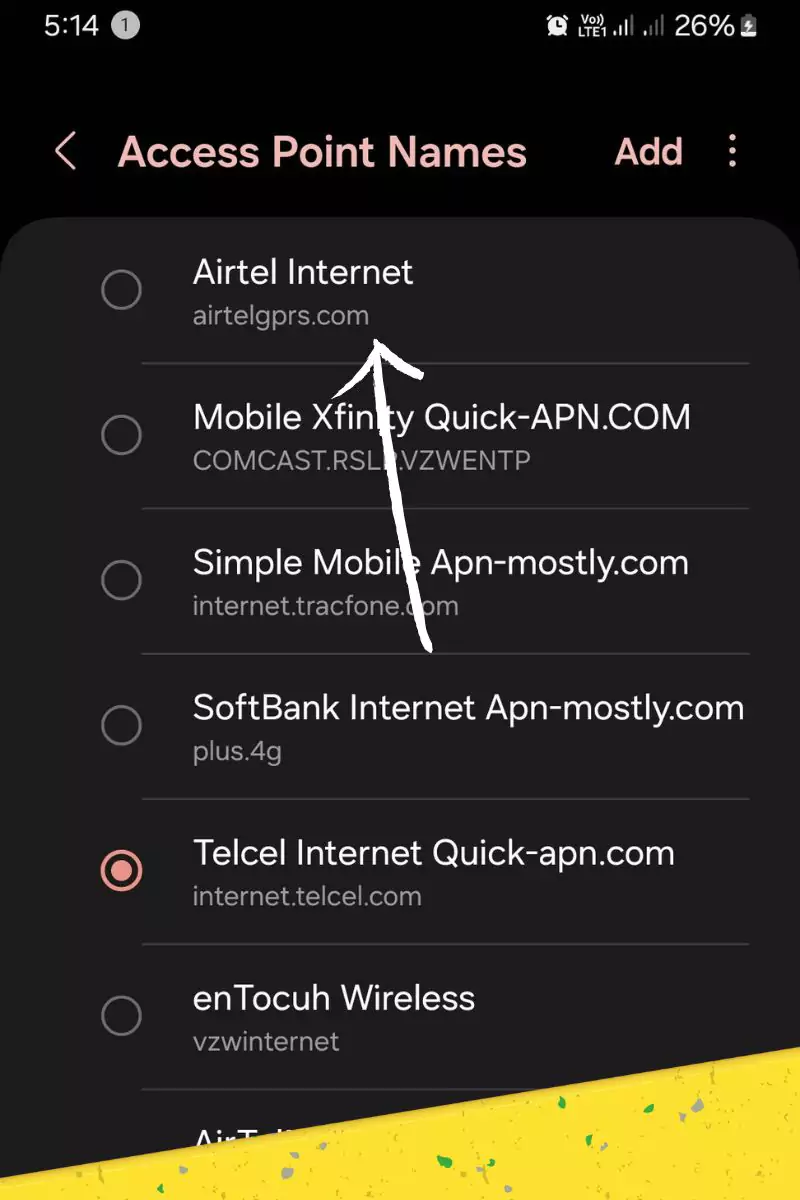
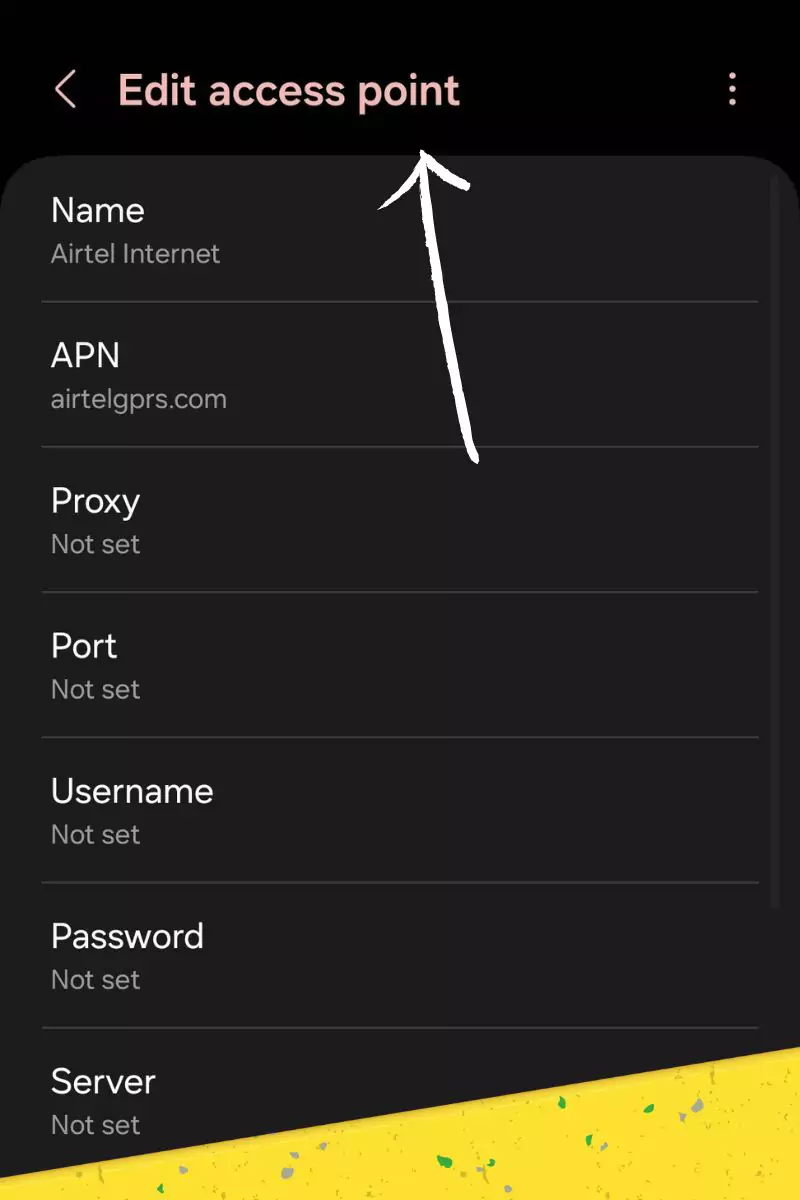
- Name: Google Fi
- APN: h2g2
- MMSC: http://m.fi.goog/mms/wapenc
- MCC: 310
- MNC: 311
After entering these details, don’t forget to save the APN settings.
For iOS devices
My recommendation is to go to Settings > Cellular Data > Cellular Data Network. In each field, enter the following details:
- Mobile Data APN: h2g2-t
- LTE Setup APN: h2g2
- MMS APN: h2g2
- MMSC: http://m.fi.goog/mms/wapenc
- MMS Max Message size: 23456789
Once you’ve inputted this information, make sure to save the APN settings. This approach, in my case, should help ensure proper network connectivity on both Android and iOS devices.

Restoring Default APN Configuration
Sometimes, custom APN tweaks may cause conflicts or connectivity issues. In such cases, resetting to the default settings can resolve the problem:
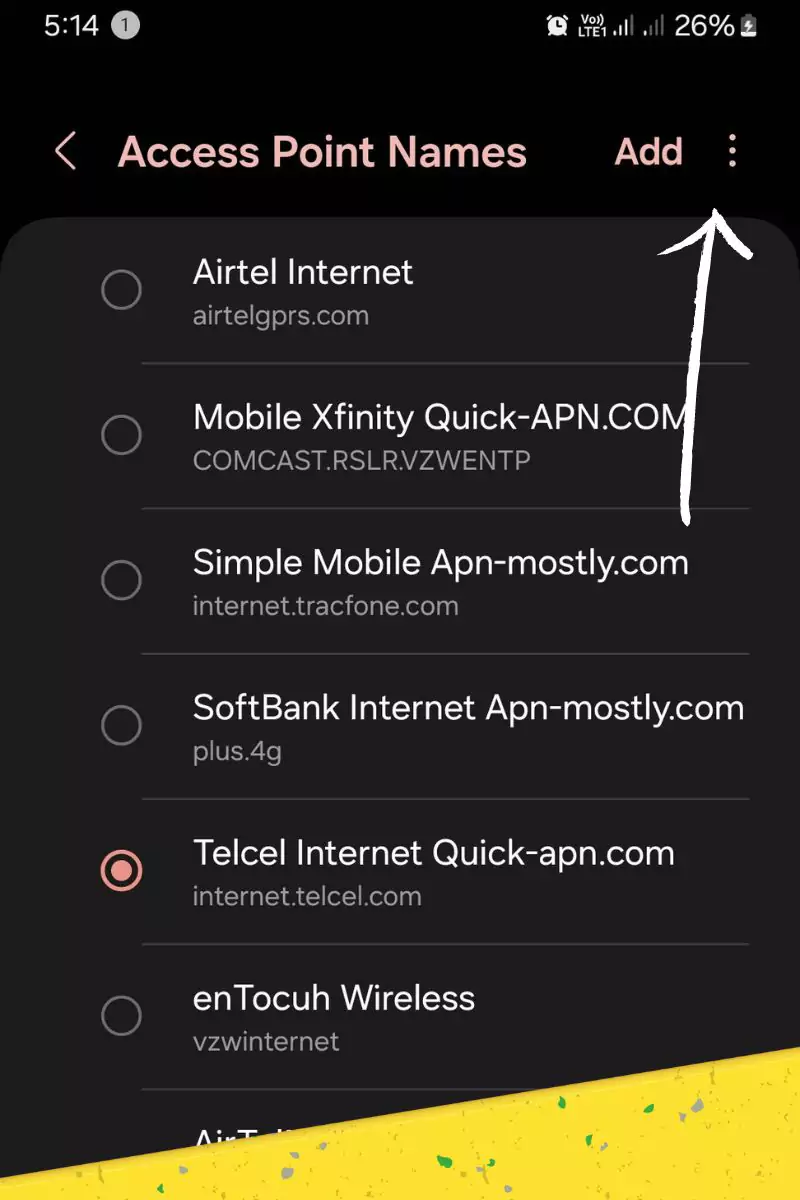
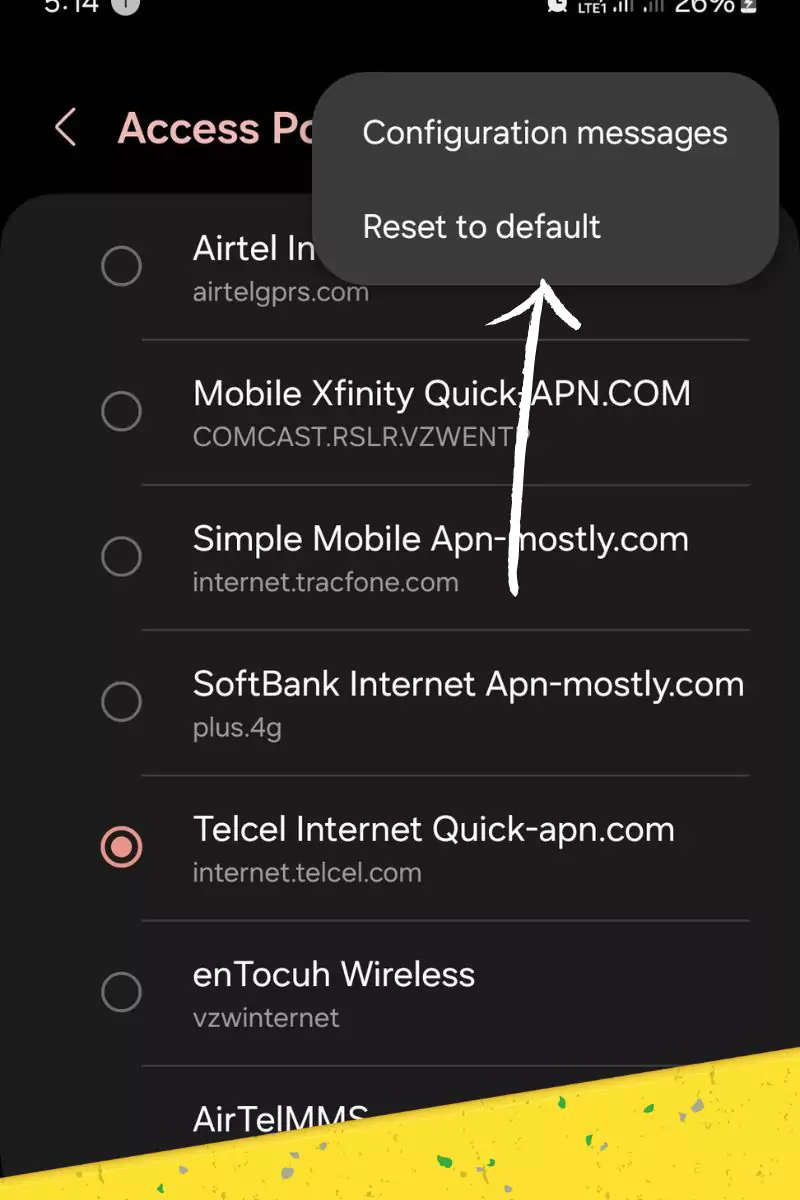
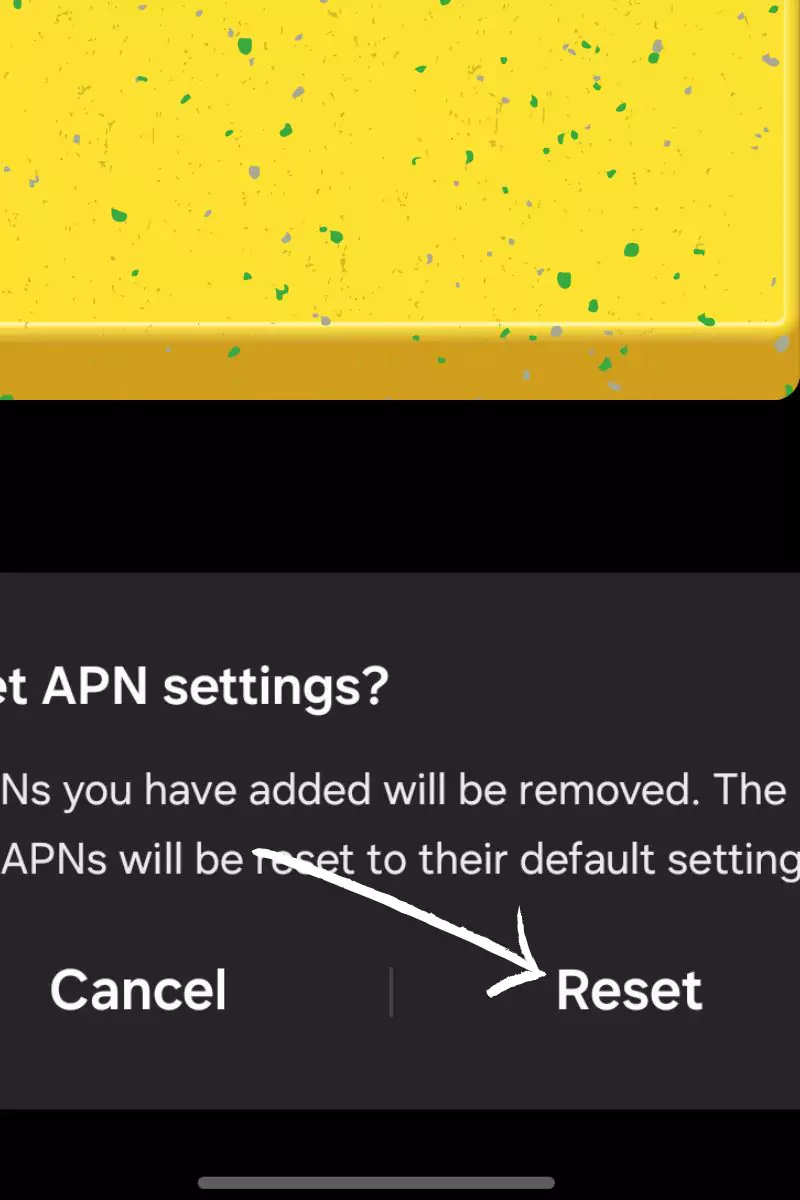
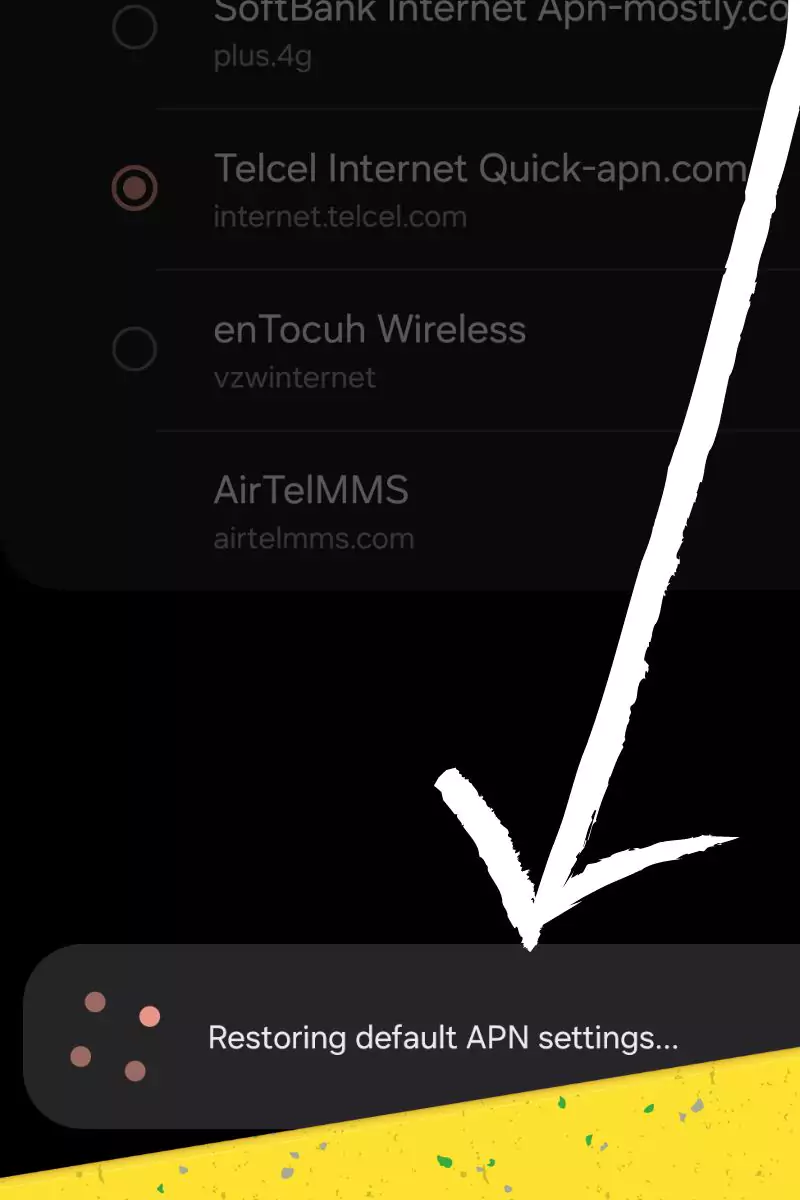
By inputting the recommended values provided by Simba, such as an APN address like “simbamobile.com,” you’re optimizing your device’s connectivity with their service. Should you need to revert changes, look for a “Reset to default” option to restore the original, Simba-specified configuration.
Troubleshooting APN Settings Issues in Google FI
In my case, if you happen to experience data connectivity issues, I recommend following these troubleshooting steps:
- Reset APN Settings: Begin by resetting the Access Point Names (APN) settings to factory defaults and then reconfigure them manually.
- Restart Your Device: To refresh network connections, I suggest restarting your device or reset the entire internet settings. This simple step can often resolve connectivity issues.
- Contact Google Fi Support: If the problem persists, it’s advisable to get in touch with Google Fi support for further assistance. They can provide specific guidance tailored to your situation and help resolve any persistent connectivity issues.
Additional Tips and Considerations
- Regularly update your device software to ensure compatibility with the latest APN settings.
- Enable automatic APN updates for seamless configuration.
- Consider using a backup APN in case the primary APN fails to connect.
Understanding APN Settings
Imagine your tablet or phone is like a magical castle, and it wants to send and receive messages to and from other castles. The Access Point Name, or APN, is like a secret code that the castle needs to know so it can talk to the other castles (or the cellular network).
So, the APN is like the special key that helps your device communicate with the outside world. It tells your device where to send the messages, how to make sure they’re secure, and what language to use. Without the right key (APN), your device might have trouble talking to other castles (connecting to the cellular network) and sending and receiving messages (using data).
APN Components
APN settings comprise several key components:
- APN Name: Identifies the mobile network provider (e.g., “Google Fi”)
- MMSC: Defines the Multimedia Messaging Service Center, responsible for sending and receiving multimedia messages (MMS)
- MNC and MCC: Mobile Country Code, a unique identifier for the country (e.g., “310” for the United States) and Mobile Network Code, a unique identifier for the network carrier (e.g., “311” for T-Mobile in the United States)
Significance of APN Settings
APN settings play a critical role in various mobile data services:
- MMS: MMS relies on APN settings to establish a connection for sending and receiving multimedia messages.
- Web Browsing: APN settings provide the necessary parameters for accessing the internet.
Conclusion
It’s super important to have the right APN settings for Google Fi if you want to use all the cool mobile data services without any issues. Don’t worry though, just follow the guides and tips provided here and you’ll be all set to make the most of your Google Fi experience!
That’s it for the blog post today. Today I have listed all the APN settings that are required for you to get a proper connection and all. If you face any issue related to it, let me know in the comment section or simply contact us.
